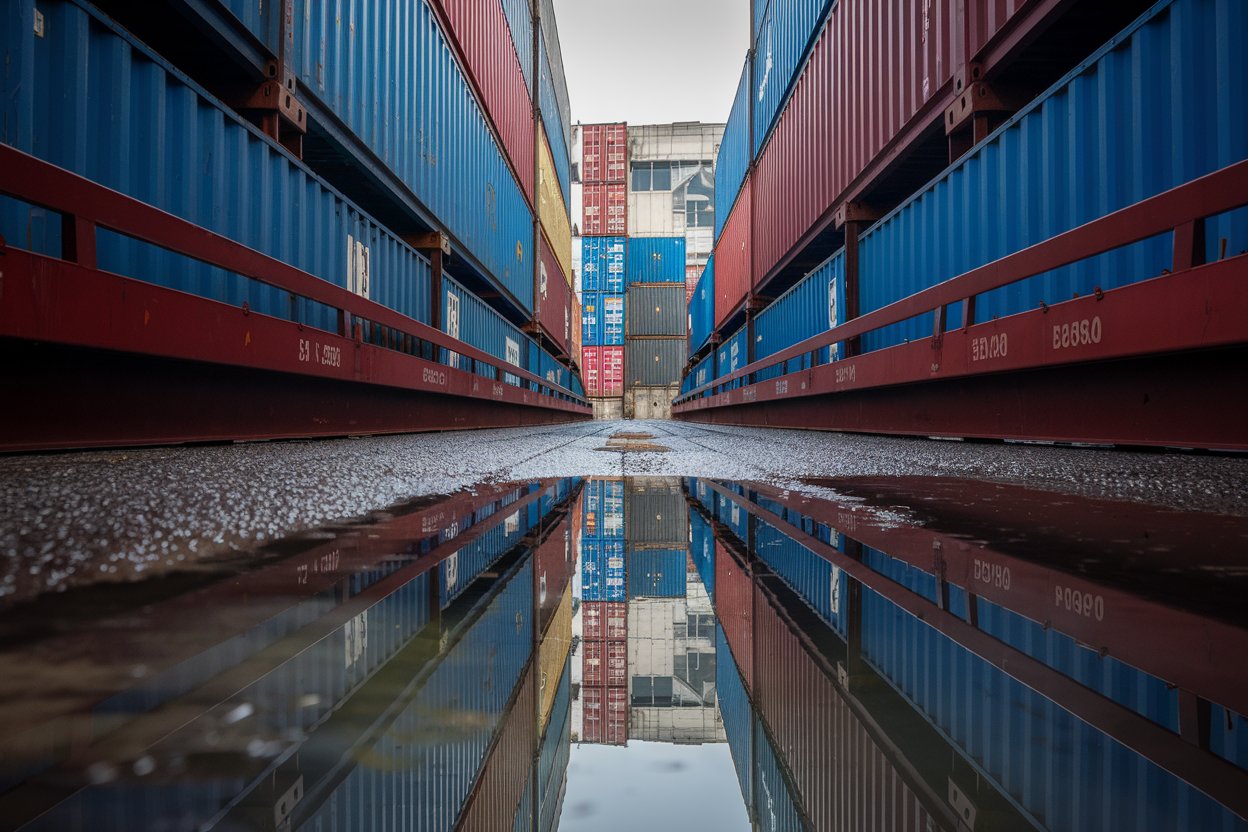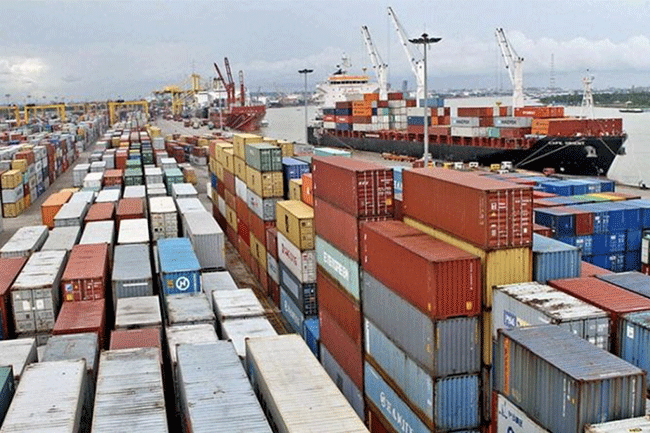- Shanghai Zhongshen International Trade Co., Ltd. - Two decades of trade agency expertise.
- Service Hotline: 139 1787 2118

Introduction
In today's globalized market environment, the business demand for imported electronic thermometers is growing rapidly. Whether it's the needs in the healthcare sector or temperature monitoring requirements in industrial production, electronic thermometers play a crucial role. However, importing electronic thermometers is no easy task, involving numerous complex trade processes, regulations, and logistics procedures. From a professional perspective, this article will comprehensively analyze all aspects related to importing electronic thermometers,foreign tradeimport and exportMatters.
Document Handling: Professionalism Ensures Efficiency
Document processing is a crucial step in the importation of electronic thermometers. For items likeZhongShen International TradeThis focus on progressExport RepresentationFor service-oriented companies, professional document handling capability is the cornerstone of success.
In the documentation preparation for importing electronic thermometers, the first step involves the Commercial Invoice. The Commercial Invoice provides a detailed record of the goods' description, quantity, value, and other essential information, serving as a crucial basis for customs taxation. We ensure that the invoice information is accurate and fully consistent with the actual goods. For instance, when describing the specifications of the electronic thermometer, we will specify key parameters such as the measurement range and accuracy.
The Packing List is also an essential document. It provides a detailed record of the packaging conditions of the goods, including the packaging form and the quantity of goods in each package. For precision instruments such as electronic thermometers, packaging details are crucial. We meticulously verify the quantity of thermometers in each package to ensure consistency with the actual shipped goods, while also documenting the packaging materials to meet customs requirements for the safety of goods packaging.
The Bill of Lading (B/L), as a crucial document for cargo transportation, is of undeniable importance. When handling the B/L, we maintain close communication with shipping companies to ensure that the information on the B/L aligns with the actual transportation conditions of the goods. Particularly in the shipment of electronic thermometers, where the cargo may have specific requirements regarding the transportation environment—such as temperature and humidity—we clearly note these special requirements on the B/L to ensure the shipping company pays attention to them during transit.
During the documentation process, we also pay close attention to the correct use of various trade terms. For instance, when adopting the CIF (Cost, Insurance, and Freight) term, we are not only responsible for arranging the transportation and insurance of the goods but also must ensure that the risk is officially transferred to the buyer only when the goods pass the ship's rail at the destination port. This requires us to clearly reflect relevant information such as insurance clauses and freight payment in the documents to avoid potential trade disputes later on.
Logistics Arrangement: Prioritizing Both Safety and Timeliness
The logistics process directly determines whether the imported electronic thermometer can arrive at the destination on time and safely.
From the perspective of transportation mode selection, for products such as electronic thermometers,Maritime TransportationIt is usually a more common choice. Sea freight offers the advantages of large capacity and low cost, but the transit time is relatively longer. When selecting sea freight, we comprehensively consider the delivery requirements of the goods. If the goods are not urgently needed, we will arrange full container load (FCL) transportation to ensure the safety of the goods during transit. For precision instruments like electronic thermometers, FCL can reduce the risk of collision during transportation.
If the delivery time is tight, we may considerAir TransportationAir transport is fast, but the cost is relatively high. When arranging air shipments, we will negotiate suitable cargo space with the airline and ensure proper handling of the goods during loading, transportation, and unloading. Since electronic thermometers are sensitive to temperature, vibration, and other factors, we will request the airline to provide an appropriate transportation environment during air shipment.
After the goods arrive at the destination port, the customs clearance process is equally important. We have extensive experience in customs clearance and are familiar with the regulations and procedures of customs authorities in various countries. Taking the import of electronic thermometers into the Southeast Asian market as an example, different countries may have different customs clearance requirements. In Malaysia, customs may impose strict requirements on the product manual of electronic thermometers, mandating that it include product descriptions in Malay. We will prepare the necessary documents in advance to ensure smooth customs clearance.
Russian market: VTBFX Settlement AgencyThe advantages are obvious
When importing electronic thermometer business involves the Russian market, the convenience advantage of VTB settlement by Zhongshen International Trade becomes particularly important.
Foreign exchange settlement is a crucial step in international trade, involving how exporters can receive payments safely and efficiently. In trade with Russia, conducting foreign exchange settlement through VTB (Vneshtorgbank) offers numerous advantages.
First and foremost, VTB has deep roots and an extensive business network in the Russian financial market. This means that the flow of funds can proceed more smoothly, reducing delays caused by poor interbank communication. For example, when handling foreign exchange settlement procedures, VTB can process relevant documents quickly, shortening the time for funds to arrive.
Secondly, VTB has an in-depth understanding of Russia's trade regulations and financial policies. In the transaction of importing electronic thermometers, certain specific Russian trade requirements may be involved, such as product certification standards and tariff policies. VTB can assist us in ensuring that the foreign exchange settlement process complies with local regulatory requirements in Russia, thereby mitigating risks arising from non-compliance with regulations.
Regarding the specific foreign exchange settlement process, after we finalize the transaction of importing electronic thermometers with our Russian client, the client will transfer the payment to our account opened at VTB. VTB will review the received funds and, upon confirmation of accuracy, convert the foreign currency into RMB at the prevailing exchange rate before transferring the amount to our designated domestic account. Throughout this process, VTB will provide detailed foreign exchange settlement documents to facilitate our financial accounting and subsequent trade procedures.
Southeast Asian Market: Detailed Import and Export Processes and Solutions
The Southeast Asian market has a broad demand for imported electronic thermometers. Although the import and export processes in different countries share similarities, there are also some differences.
Taking Indonesia as an example, importing electronic thermometers first requires pre-declaration of the product. We will prepare detailed product information in advance, including the brand, model, technical parameters, etc., and submit a pre-declaration to Indonesian Customs. The customs authorities will conduct a preliminary review based on the declared information to determine whether the goods meet the import requirements.
Before the goods arrive at the Indonesian port, we need to submit the officialImport Customs DeclarationThe customs declaration form. The customs declaration form must accurately include information such as the value, quantity, and origin of the goods. Additionally, relevant documents like commercial invoices, packing lists, and bills of lading must be provided. Upon receiving the customs declaration form and the documents, the customs authorities will conduct further review.
For products such as electronic thermometers, Indonesia may require relevant product certifications. Although ZhongShen International Trade does not directly handle certification services, we will assist clients in understanding the types of certifications required and the application process. For example, electronic thermometers may need to comply with Indonesia's national standard certification. We will guide clients in preparing the necessary application documents, contacting locally recognized certification bodies, and tracking the certification progress to ensure the certification procedures are completed before the goods arrive.
Regarding exports, assuming we import components for electronic thermometers from Southeast Asian countries, we need to submit the necessary documents to the local customs before the goods are exported.Export ClearancePlease translate the following Chinese into English:
Single. Similarly, it is necessary to accurately fill in the cargo information and provide the relevant documents. During the export process, we will pay attention to the export control policies of Southeast Asian countries to ensure that the exported components do not violate local regulations.
For logistics solutions in the Southeast Asian market, we typically choose freight forwarding companies with strong local partnerships. These freight forwarders are familiar with local port conditions, transportation routes, and customs procedures, enabling them to better assist us in completing cargo transportation and customs clearance. For example, at the Port of Singapore, our partnered freight forwarding company can quickly arrange cargo loading, unloading, and transshipment, thereby improving logistics efficiency.
Current International Trade Situation: Challenges and Opportunities Coexist
The current international trade situation is complex and ever-changing, presenting numerous challenges and opportunities for the import of electronic thermometers.
From the perspective of challenges, the rise of trade protectionism is a significant issue. Some countries may raise import tariffs or impose various non-tariff barriers. For example, certain nations might implement stringent technical standards and inspection and quarantine requirements for imported electronic thermometers, which increases the difficulty and cost of imports. We need to closely monitor policy changes in various countries and adjust trade strategies promptly. For newly introduced technical standards, we must assist clients in quickly understanding and meeting the relevant requirements to ensure smooth importation of goods.
The ongoing impact of the global pandemic has also introduced uncertainty to international trade. Issues such as logistics disruptions and supply chain interruptions occur from time to time. During the importation of electronic thermometers, delays in cargo transportation and port congestion may arise. To address these challenges, we will proactively develop contingency plans, such as selecting alternative transportation routes and ports, maintaining close communication with suppliers, and ensuring a stable supply of raw materials.
However, challenges also present opportunities. With the acceleration of global digitalization, the development of online trade platforms has provided a broader market for the import of electronic thermometers. We can expand our customer base through online platforms and establish connections with more international buyers. At the same time, the rise of emerging markets has brought us new opportunities. The rapid economic development in some Southeast Asian countries and regions has led to an increasing demand for electronic thermometers. We can seize these market opportunities by gaining a deeper understanding of local demand characteristics and offering products and services that better align with market needs.
Product Certification Services: Assisting Clients in Compliance Operations
In the business of importing electronic thermometers, product certification is a crucial step to ensure compliance with the regulatory requirements of the target market.
The certification requirements for electronic thermometers vary across different countries and regions. In Europe, obtaining CE certification may be necessary to demonstrate that the product complies with European safety, health, and environmental standards. In the United States, FCC certification is required to ensure the product's electromagnetic compatibility.
Although ZhongShen International Trade does not directly handle certification services, we leverage our extensive experience to provide professional assistance to our clients. We help clients identify the types of certifications required for different markets and guide them in preparing the necessary application documents. For instance, when applying for CE certification, we inform clients about the required technical documentation, test reports, and other materials. Additionally, we recommend reputable certification agencies within the industry, assist clients in communicating and coordinating with these agencies, and follow up on the certification progress to ensure clients successfully obtain the required certifications and conduct their import business in compliance with regulations.
In summary, importing electronic thermometers involves numerous complex processes, ranging from document handling and logistics arrangements to foreign exchange settlement and product certification. Each step requires professional knowledge and experience. With its expertise in import and export agency services, ZhongShen International Trade provides clients with comprehensive and efficient solutions, helping them navigate various challenges in the electronic thermometer import business and seize market opportunities.
Related Recommendations
Category case
Get in Touch
Email: service@sh-zhongshen.com
Related Recommendations
Contact via WeChat

? 2025. All Rights Reserved. Shanghai ICP No. 2023007705-2  PSB Record: Shanghai No.31011502009912
PSB Record: Shanghai No.31011502009912








